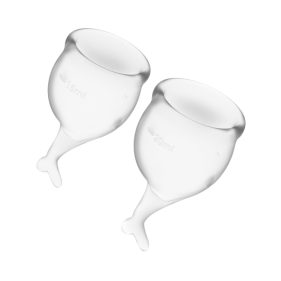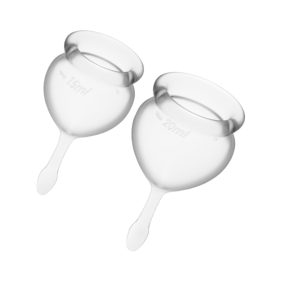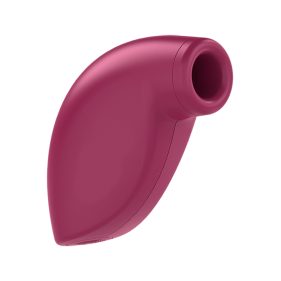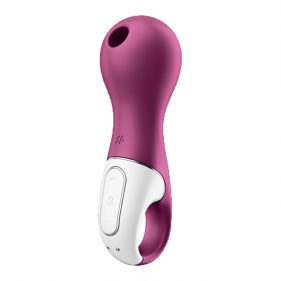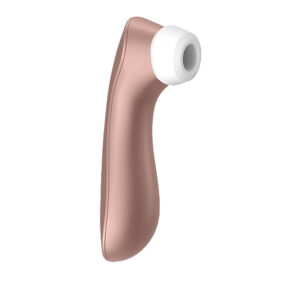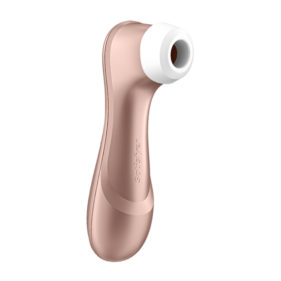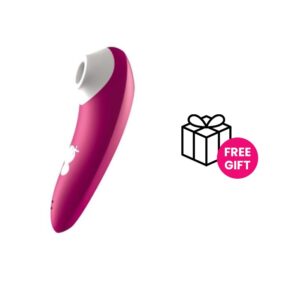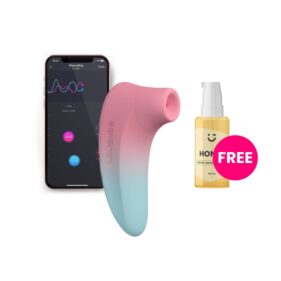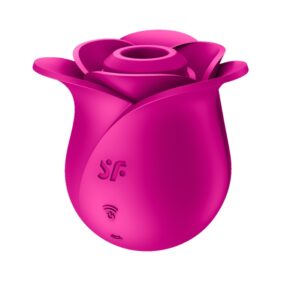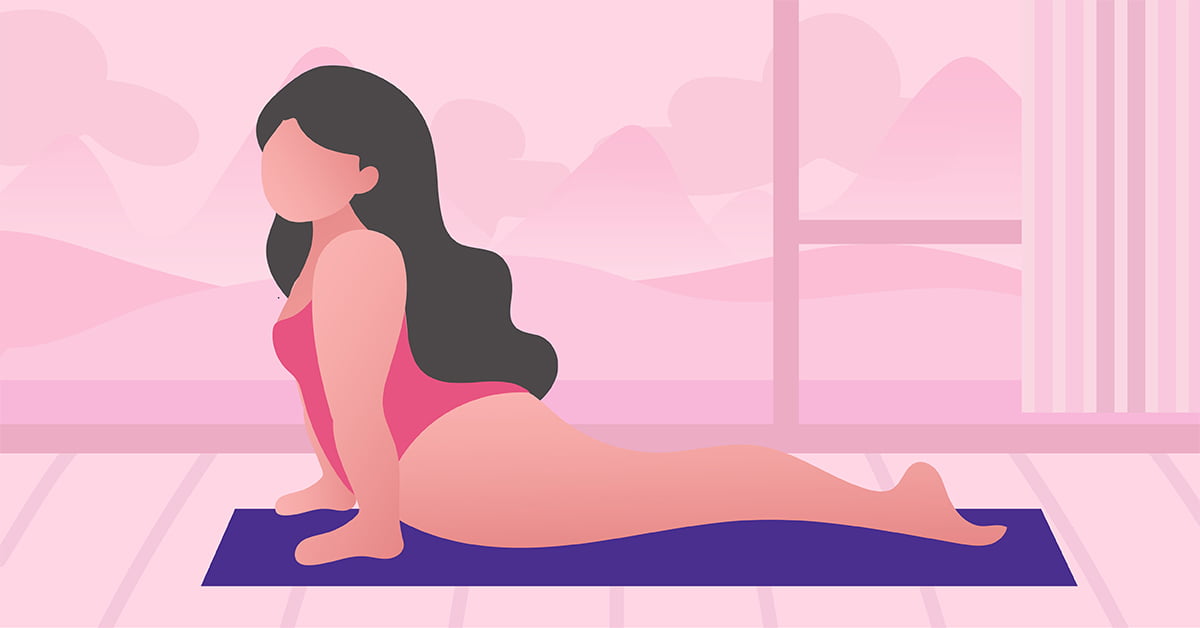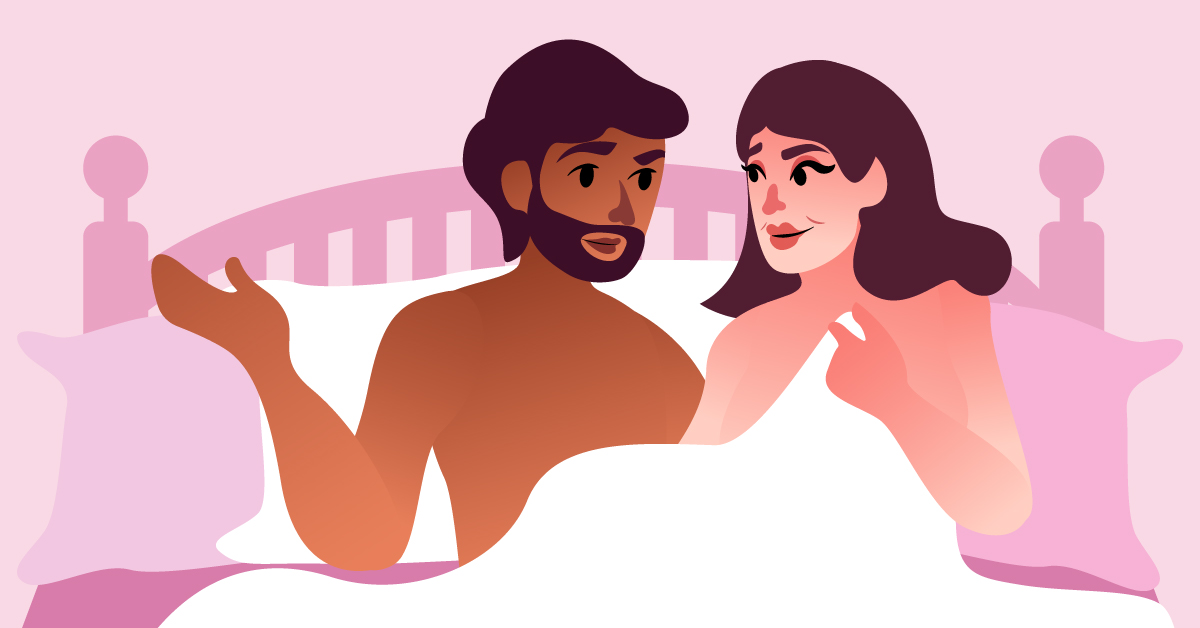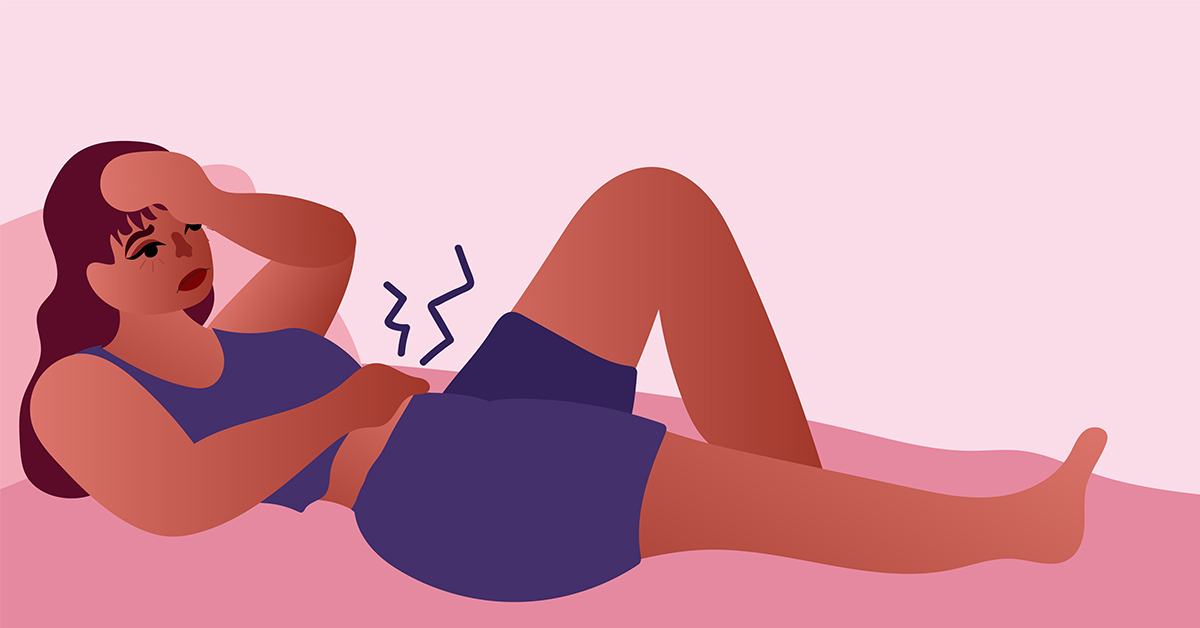
Looking for ways to relieve period cramps? Look no further! Here’s a comprehensive guide just for you. Settle down and prepare to take notes as you go through each remedy.
When that time of the month comes, there are two types of experiences a woman can get during her cycle. The first type is for the lucky ones. They feel minimal pain or no pain at all. Though they feel some changes occurring in their bodies and emotions, it’s not as stressful as compared to the second type.
On the other hand, the second type brings an annoying and agonizing experience. Women who undergo this usually can’t carry out their tasks properly due to period pain. Some even take up sick days just to deal with it. As you’re currently searching for this topic, it seems like you’re under the second type.
Don’t worry though as we will help you relieve the pain that you’re feeling right now. With our comprehensive guide on how to relieve period cramps, you’ll be able to know the different remedies that you can try to ease out the pain.But before we discuss these remedies, let’s have a quick refresher.
What Are Period Cramps?
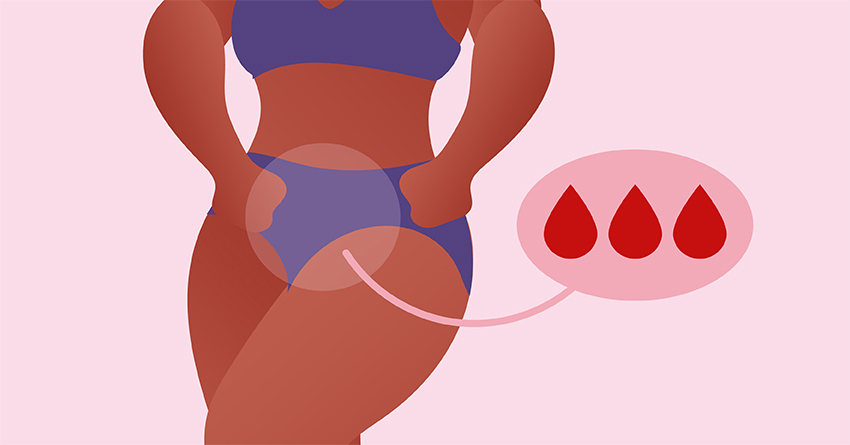 Period cramps, also known as menstrual cramps and dysmenorrhea, are painful sensations that you experience before and during your menstrual period. The pain usually occurs in the lower abdomen/back and ranges from mild to severe pain. It tends to begin 1 to 2 days before menstruation and lasts from 2-4 days. By this time, you may feel irritable and sluggish. You may also feel nausea, headaches, dizziness, and diarrhea along with the agonizing pain, though this varies per woman.
Period cramps, also known as menstrual cramps and dysmenorrhea, are painful sensations that you experience before and during your menstrual period. The pain usually occurs in the lower abdomen/back and ranges from mild to severe pain. It tends to begin 1 to 2 days before menstruation and lasts from 2-4 days. By this time, you may feel irritable and sluggish. You may also feel nausea, headaches, dizziness, and diarrhea along with the agonizing pain, though this varies per woman.
-
₱895.00
-
₱4,045.00
Types of Period Cramps
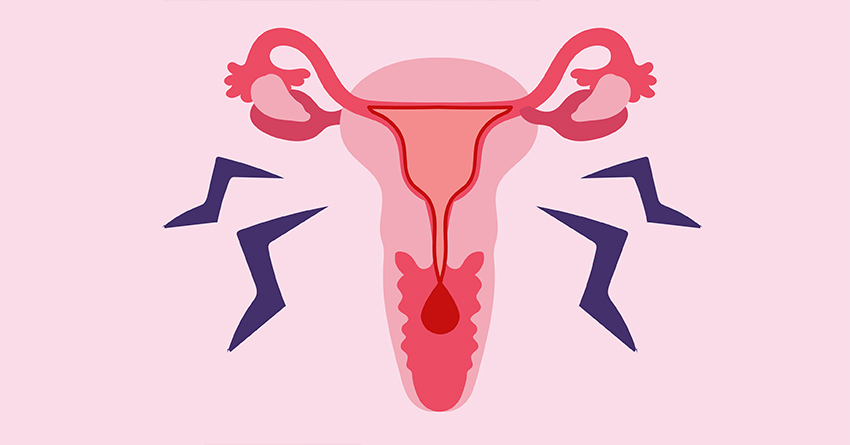 Knowing the two types of period cramps is essential in case you decide to see a doctor. This will help your healthcare provider to determine the cause of your period pain.
Knowing the two types of period cramps is essential in case you decide to see a doctor. This will help your healthcare provider to determine the cause of your period pain.
Primary Dysmenorrhea
This type occurs to women who experience pain ever since they started menstruating. It’s a common type and is not due to other diseases. If you’ve read the what are period cramps section above, that is what you’ll feel under this type. You may also feel less pain as time goes on may even stop entirely if you ended up having a baby.
Secondary Dysmenorrhea
This type occurs to women who have normal periods for years, then become painful later in life. Unlike Primary Dysmenorrhea, this type is caused by a disorder in the woman’s reproductive organs. The pain also begins earlier in the menstrual cycle and lasts longer than the common (primary) menstrual cramps. It can also be more painful in some cases, compared to common menstrual cramps. Aside from that, it’s also usually not accompanied by fatigue, nausea, diarrhea, and vomiting.
Causes of Period Cramps
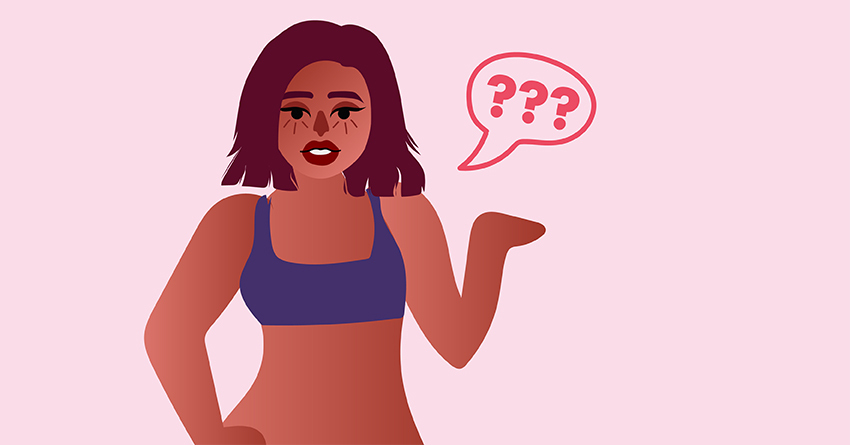 If you’re experiencing primary dysmenorrhea, the pain is caused by hormonal changes that occur during the cycle, specifically by a hormone called prostaglandin. This hormone triggers muscle contraction in your uterus that expels the lining, causing pain and inflammation in the area. Now, if you’re suffering from secondary dysmenorrhea, the cause can be more complex, as it can be a result of an underlying medical condition such as:
If you’re experiencing primary dysmenorrhea, the pain is caused by hormonal changes that occur during the cycle, specifically by a hormone called prostaglandin. This hormone triggers muscle contraction in your uterus that expels the lining, causing pain and inflammation in the area. Now, if you’re suffering from secondary dysmenorrhea, the cause can be more complex, as it can be a result of an underlying medical condition such as:
Premenstrual Syndrome (PMS)
Premenstrual Syndrome or PMS is a condition that changes a woman’s behavior and health during certain days of the menstrual cycle. If you’re wondering why your mood changes every hour while having your period, this is most likely the reason for that. This is due to the increase of various hormones in the body, such as estrogen and progesterone. Once the levels of these hormones start changing during the cycle, expect to feel irritable, anxious, hungry, horny, and sad. Though these are just normal feelings that on a daily basis, PMS heightens up those feelings, making you cry for no reason, binge a tub of ice cream, or get mad at your partner over nothing.
Endometriosis
It’s a disorder in which tissue similar to the tissue that normally lines inside of your uterus (the endometrium) grows outside your uterus. The endometrial-like tissues then act as what an endometrial tissue would act if it’s inside your uterus—it thickens, breaks downs, and bleeds every time you have a period. However, unlike the actual endometrium, the endometrial-like tissues cannot exit your body and become trapped, thus irritating the surrounding tissues, ovaries, and Fallopian tubes.
Uterine Fibroids
Uterine Fibroids are noncancerous growths of the uterus that usually appear during your childbearing years. These fibroids range from tiny seedlings size to bulky masses that can enlarge or distort the uterus.
Pelvic Inflammatory Disease (PID)
Pelvic Inflammatory Disease or PID is an infection that occurs to female reproductive organs. It’s usually caused by sexually transmitted bacteria and can affect your uterus, Fallopian tubes, or ovaries.
Adenomyosis
This is a rare condition wherein the tissue that lines the uterus grows into the muscular wall of the uterus. The tissue then continues to act as if it’s inside the uterus, thickening, breaking down, and bleeding with each menstrual cycle. This enlarges the uterus, resulting in heavy and painful periods.
Cervical Stenosis
With this rare condition, the passageway through the cervix is narrow or completely closed. It’s usually a result of another disorder such as menopause or cervix cancer. It’s also caused by various medical procedures such as dysplasia—surgery that’s done to treat precancerous changes of the cervix. Note: Now, before you panic, remember that only a medical professional can determine the cause of your menstrual cramps. If the pain has worsened and is accompanied by other symptoms, avoid self-diagnosing, and consult the doctor immediately.
-
₱4,745.00
-
₱4,745.00
-
₱3,400.00
-
₱7,508.00
20 Ways to Relieve Period Cramps
Now that you’ve learned about menstrual periods and its causes, we’re now moving on to the best ways to relieve period cramps. Take note though, each remedy varies per woman. Some of the remedies may not work for you but could work well on others. With that, we suggest you keep a list of the methods that work, as well as ranking them from the most effective to the least effective. Let’s dive right in!
Heat Therapy
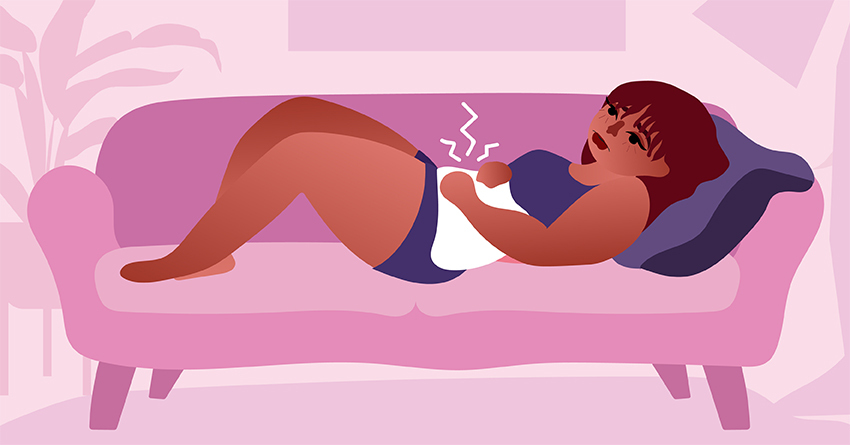 According to this 2012 study, using heat therapy is as effective as ibuprofen in terms of relieving menstrual pain. By putting heat pads on your abdomen or lower back area, it relaxes the muscles of the uterus, thus easing the pain you’re feeling. If you want to try this remedy, you can use a heating pad, water bottle with hot water in it, or hot towel. Once you have the items mentioned, you can place the heated items on your abdomen or lower back area. Wait for a few minutes or until the pain subsides. Take note though, the items shouldn’t be boiling hot. Another technique is through a warm bath. If you have a bathtub at home, pour warm water, submerge on the tub, then take some time to relax. Light some scented candles for a more relaxing experience.
According to this 2012 study, using heat therapy is as effective as ibuprofen in terms of relieving menstrual pain. By putting heat pads on your abdomen or lower back area, it relaxes the muscles of the uterus, thus easing the pain you’re feeling. If you want to try this remedy, you can use a heating pad, water bottle with hot water in it, or hot towel. Once you have the items mentioned, you can place the heated items on your abdomen or lower back area. Wait for a few minutes or until the pain subsides. Take note though, the items shouldn’t be boiling hot. Another technique is through a warm bath. If you have a bathtub at home, pour warm water, submerge on the tub, then take some time to relax. Light some scented candles for a more relaxing experience.
Exercise
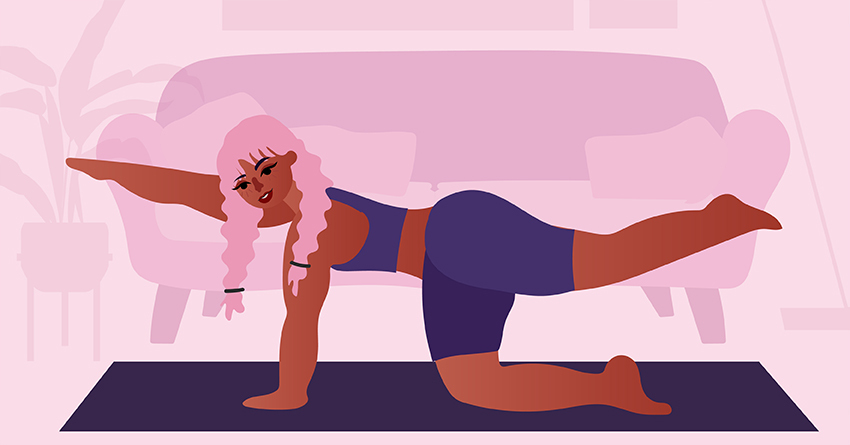 Most women prefer to rest when dealing with dysmenorrhea, but did you know that exercise can actually relieve period cramps? Yes, getting up and moving around can ease that dreadful pain. Exercise relieves menstrual pain because it helps release beta-endorphins, which some medical professionals call “Human Morphine”. Aside from releasing beta-endorphins, it also produces analgesia that helps to quickly burn the prostaglandins faster—chemicals released during menstruation that triggers muscle contraction. If you’re interested in doing this remedy, go for aerobic exercises—something that gets your heart rate up. Examples are biking, brisk walking, swimming, jogging, dancing, etc. Now, keep in mind that you have to be consistent with it. The only way to get its pain-relieving benefits is by exercising at least three times a week, for 30 minutes each session. The longer workout sessions you have, the lesser pain you’ll feel on every cycle.
Most women prefer to rest when dealing with dysmenorrhea, but did you know that exercise can actually relieve period cramps? Yes, getting up and moving around can ease that dreadful pain. Exercise relieves menstrual pain because it helps release beta-endorphins, which some medical professionals call “Human Morphine”. Aside from releasing beta-endorphins, it also produces analgesia that helps to quickly burn the prostaglandins faster—chemicals released during menstruation that triggers muscle contraction. If you’re interested in doing this remedy, go for aerobic exercises—something that gets your heart rate up. Examples are biking, brisk walking, swimming, jogging, dancing, etc. Now, keep in mind that you have to be consistent with it. The only way to get its pain-relieving benefits is by exercising at least three times a week, for 30 minutes each session. The longer workout sessions you have, the lesser pain you’ll feel on every cycle.
Herbal Tea
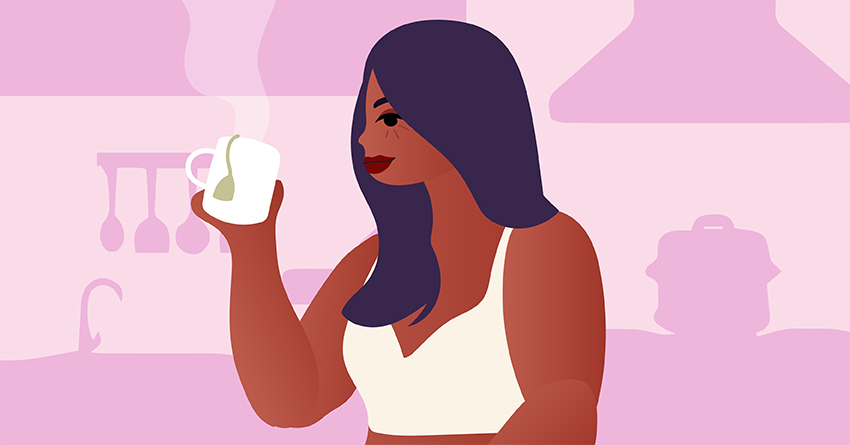 Most women opt to milk tea shops to satisfy their cravings, but it can actually do more harm than good. Did you know that drinking sugary drinks can leave more lethargic than ever? It can also bring you unnecessary bloating which will be annoying while being on your period. With that, go for warm herbal teas instead. Herbal teas—especially chamomile, ginger, and peppermint—consist of anti-inflammatory elements that can relieve period cramps. Research also shows that glycine, which can be found on chamomile tea, can reduce muscle spasms and can relax your nerves, making your menstrual pain more manageable.
Most women opt to milk tea shops to satisfy their cravings, but it can actually do more harm than good. Did you know that drinking sugary drinks can leave more lethargic than ever? It can also bring you unnecessary bloating which will be annoying while being on your period. With that, go for warm herbal teas instead. Herbal teas—especially chamomile, ginger, and peppermint—consist of anti-inflammatory elements that can relieve period cramps. Research also shows that glycine, which can be found on chamomile tea, can reduce muscle spasms and can relax your nerves, making your menstrual pain more manageable.
Massage
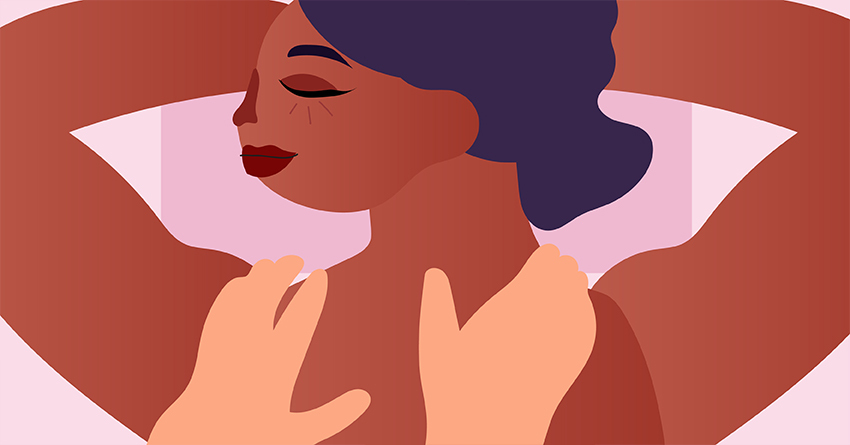 If you want a more relaxing approach, you can get a massage to relieve your period cramps. Just massage over the abdomen area to relax your pelvic muscles and alleviate cramping. Massaging your back can also be beneficial, as it directly supports the area where the uterus is. As for the oil, you can use your trusted massage oils, but for a better experience, use essential oils instead. According to research, using essential oils for abdominal massage brings more significant relief as compared to using the normal carrier oil. Now, should you get essential oils to reduce your period pain, go for essential oils that consist of cinnamon, clove, rose, or lavender.
If you want a more relaxing approach, you can get a massage to relieve your period cramps. Just massage over the abdomen area to relax your pelvic muscles and alleviate cramping. Massaging your back can also be beneficial, as it directly supports the area where the uterus is. As for the oil, you can use your trusted massage oils, but for a better experience, use essential oils instead. According to research, using essential oils for abdominal massage brings more significant relief as compared to using the normal carrier oil. Now, should you get essential oils to reduce your period pain, go for essential oils that consist of cinnamon, clove, rose, or lavender.
Caffeine Reduction
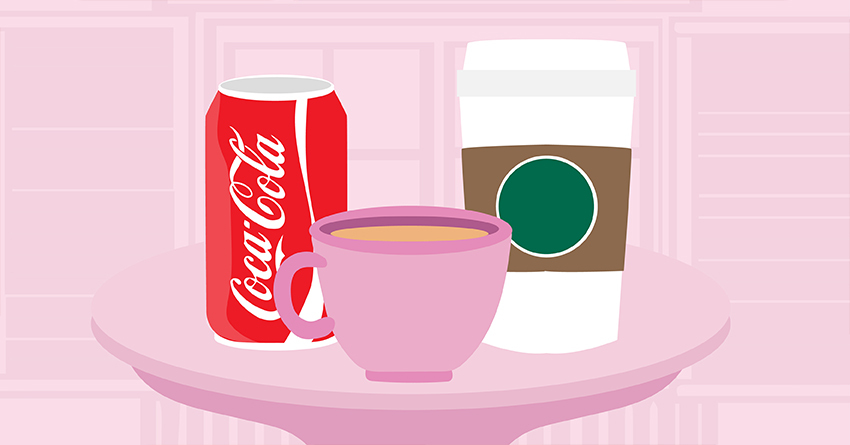 For our coffee lovers out there, you’ll probably skip this remedy immediately but hear us out! Avoiding drinks with caffeine such as coffee and soft drinks will help you relieve period cramps. Caffeine constricts your blood vessels, causing the vessels that feed your uterus to tighten. When the vessels in your uterus tighten, there’s a chance that your cramps will be more painful than ever. Though we highly suggest cutting caffeinated drinks during your period, you can have a max of one cup of brewed coffee per day. You can also opt for healthier alternatives such as tea and smoothies.
For our coffee lovers out there, you’ll probably skip this remedy immediately but hear us out! Avoiding drinks with caffeine such as coffee and soft drinks will help you relieve period cramps. Caffeine constricts your blood vessels, causing the vessels that feed your uterus to tighten. When the vessels in your uterus tighten, there’s a chance that your cramps will be more painful than ever. Though we highly suggest cutting caffeinated drinks during your period, you can have a max of one cup of brewed coffee per day. You can also opt for healthier alternatives such as tea and smoothies.
Water & Water-Based Foods
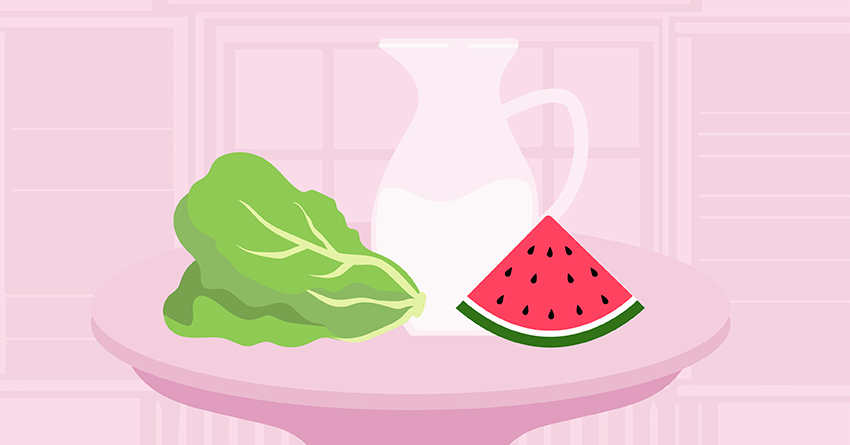 The key to lesser period pains is to stay hydrated! Drinking more water keeps your body from retaining water, preventing painful bloating during your period. Studies also show that drinking hot or warm water may relax your cramped muscles and increase blood flow to your skin. Aside from chugging H20, you can also eat water-based foods, such as:
The key to lesser period pains is to stay hydrated! Drinking more water keeps your body from retaining water, preventing painful bloating during your period. Studies also show that drinking hot or warm water may relax your cramped muscles and increase blood flow to your skin. Aside from chugging H20, you can also eat water-based foods, such as:
- Berries (Strawberries, Blueberries, Raspberries)
- Watermelon
- Celery
- Lettuce
- Cucumber
-
Original price was: ₱1,650.00.₱825.00Current price is: ₱825.00.
-
₱1,520.00
-
₱2,695.00
-
₱3,400.00
Over-The-Counter Medications
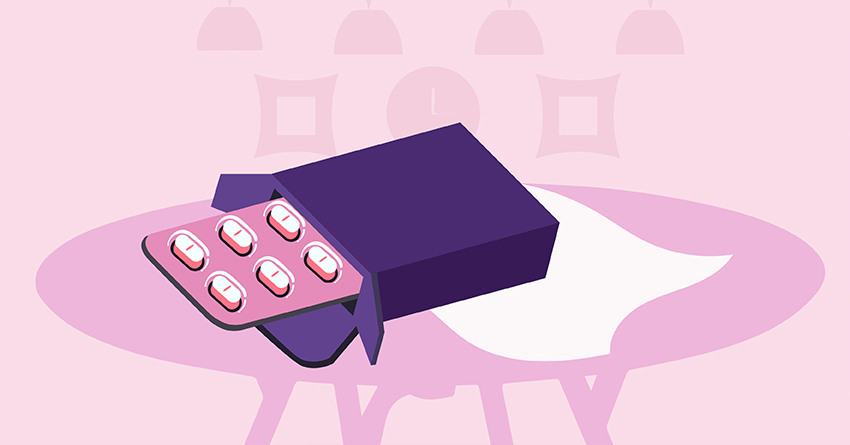 Pain relievers such as naproxen sodium or ibuprofen can effectively relieve period cramps. You just need to take them at regular doses a day before you expect your period. You can then continue taking these medications two to three days, or until your symptoms are gone. Now, if you have a medical condition that prohibits you from taking over-the-counter pain relievers, make sure to consult your doctor first before taking any of the mentioned medicines above, or try other remedies instead.
Pain relievers such as naproxen sodium or ibuprofen can effectively relieve period cramps. You just need to take them at regular doses a day before you expect your period. You can then continue taking these medications two to three days, or until your symptoms are gone. Now, if you have a medical condition that prohibits you from taking over-the-counter pain relievers, make sure to consult your doctor first before taking any of the mentioned medicines above, or try other remedies instead.
Birth Control Pills
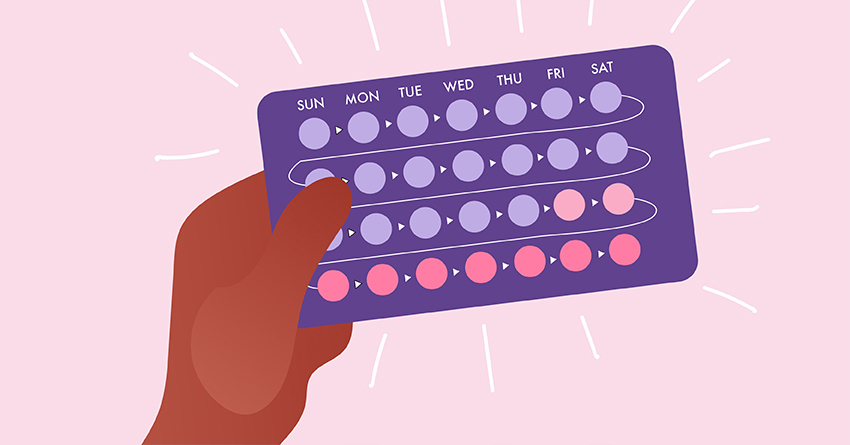 If the pain won’t just go away, you can relieve period cramps by using birth control pills and other forms of hormonal birth control. This type of birth control regulates your menstrual cycles and keeps them to a minimum. By using this, you’ll have shorter cycles, lighter bleeding, and decreased pain. However, taking birth control may cause side effects. You may end up with pimples, breast swelling, period spotting, weight gain, etc. If possible, consult your healthcare provider before going on this route.
If the pain won’t just go away, you can relieve period cramps by using birth control pills and other forms of hormonal birth control. This type of birth control regulates your menstrual cycles and keeps them to a minimum. By using this, you’ll have shorter cycles, lighter bleeding, and decreased pain. However, taking birth control may cause side effects. You may end up with pimples, breast swelling, period spotting, weight gain, etc. If possible, consult your healthcare provider before going on this route.
Diet Adjustments
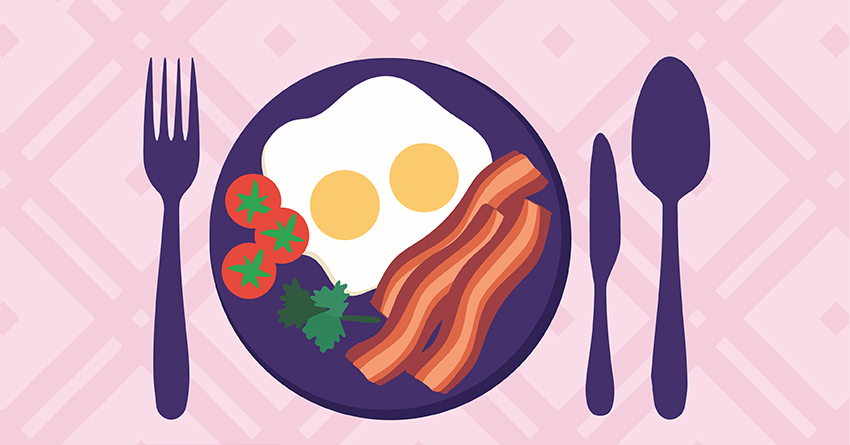 Changing your diet will relieve period cramps in the long run. Indulge in foods that are geared on reducing menstrual pain such as the following:
Changing your diet will relieve period cramps in the long run. Indulge in foods that are geared on reducing menstrual pain such as the following:
- Brown rice
- Leafy green vegetables
- Flaxseed
- Papaya
- Walnuts
- Almonds and pumpkin seeds
- Chicken & Fish (Avoid frying it)
On the other hand, there are certain foods that you should steer away from if you want to relieve menstrual pain:
- Salty Foods
- Fatty Foods
- Sugary Foods
As most of the foods you should avoid are comfort foods, changing your diet may prove difficult—especially during your period, when your cravings are at an all-time high. However, adjusting your diet will bring better and long-term effects, as well as improve your overall health.
Sleep
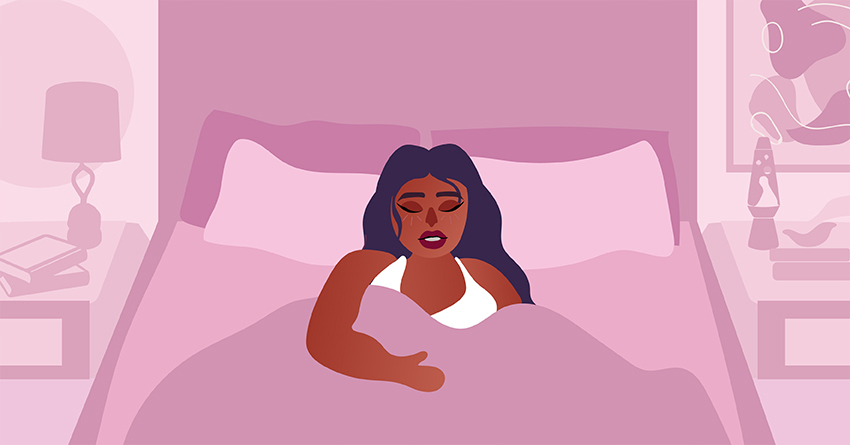 Getting enough sleep relieves period cramps, as well as improves your overall health. According to this study, women who had insomnia experience severe menstrual cramps as compared to women who can sleep regularly. So for those who like to stay up all night, now’s the time to improve your sleeping habits. If you’re having a hard time getting adequate sleep, here are some sleeping tips for you:
Getting enough sleep relieves period cramps, as well as improves your overall health. According to this study, women who had insomnia experience severe menstrual cramps as compared to women who can sleep regularly. So for those who like to stay up all night, now’s the time to improve your sleeping habits. If you’re having a hard time getting adequate sleep, here are some sleeping tips for you:
- As much as possible, stay away from electronic devices such as your phone or laptop an hour before you go to bed.
- Drink some fresh milk a few hours before bedtime.
- Read a book or listen to some relaxing music.
- Indulge in self-love. Masturbation releases hormones that relax your body.
Orgasms
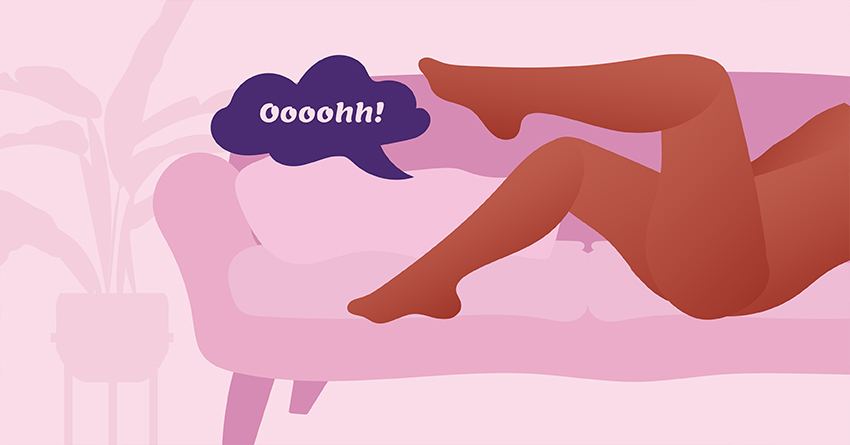 Aside from getting some Zzzs, you also need to get some Ooohs. Getting orgasms from sex or masturbation can increase oxygenation in your body, which reduces inflammation in your body. Also, as your uterus contracts when you have an orgasm, it relaxes afterward, easing the period pain temporarily.
Aside from getting some Zzzs, you also need to get some Ooohs. Getting orgasms from sex or masturbation can increase oxygenation in your body, which reduces inflammation in your body. Also, as your uterus contracts when you have an orgasm, it relaxes afterward, easing the period pain temporarily.
Sunlight (Vitamin D)
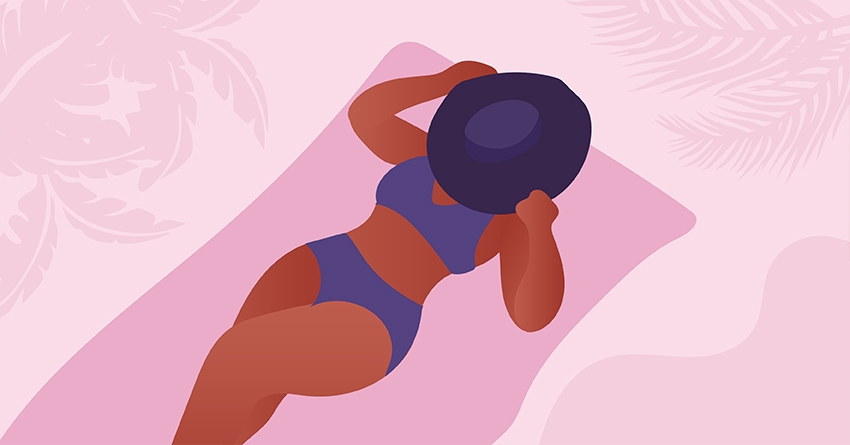 As we’ve mentioned earlier, primary menstrual cramps occur due to the increasing levels of prostaglandins in the body. Now, there is a way to reduce the production of this hormone, and that is through Vitamin D. Vitamin D, which you can get through sunlight or in supplements, reduces the production of prostaglandins, which relieves period cramps. One study even reported that young women who are suffering from menstrual cramps took fewer pain relievers when they’re taking regular doses of Vitamin D. So get your body moving and take some time in the sun! Just make sure you’re staying out in the recommended time (varies depending on which country you’re from) and in the recommended duration (at least 5 – 15 minutes).
As we’ve mentioned earlier, primary menstrual cramps occur due to the increasing levels of prostaglandins in the body. Now, there is a way to reduce the production of this hormone, and that is through Vitamin D. Vitamin D, which you can get through sunlight or in supplements, reduces the production of prostaglandins, which relieves period cramps. One study even reported that young women who are suffering from menstrual cramps took fewer pain relievers when they’re taking regular doses of Vitamin D. So get your body moving and take some time in the sun! Just make sure you’re staying out in the recommended time (varies depending on which country you’re from) and in the recommended duration (at least 5 – 15 minutes).
Dietary Supplements
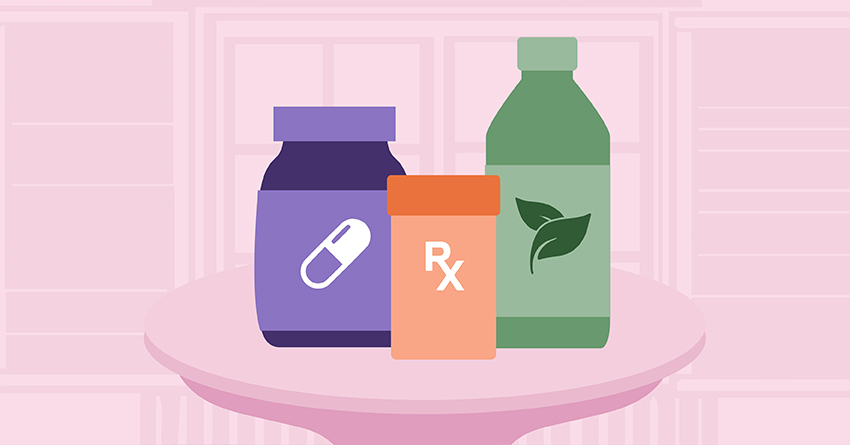 Speaking of Vitamin D, taking certain dietary supplements can relieve period cramps. Most of these supplements lower inflammation and release chemicals that can reduce your menstrual pain. Suggested supplements are Omega 3 Fatty-Acids, Calcium Citrate, and Magnesium, However, several studies show that some of the dietary supplements that were advertised as a pain reliever for dysmenorrhea are not actually effective. With that, you need to be careful when acquiring certain supplements and stick to the ones that we’ve suggested above. Also, if you’re suffering from serious medical conditions, make sure to consult your doctor first.
Speaking of Vitamin D, taking certain dietary supplements can relieve period cramps. Most of these supplements lower inflammation and release chemicals that can reduce your menstrual pain. Suggested supplements are Omega 3 Fatty-Acids, Calcium Citrate, and Magnesium, However, several studies show that some of the dietary supplements that were advertised as a pain reliever for dysmenorrhea are not actually effective. With that, you need to be careful when acquiring certain supplements and stick to the ones that we’ve suggested above. Also, if you’re suffering from serious medical conditions, make sure to consult your doctor first.
Stress Management
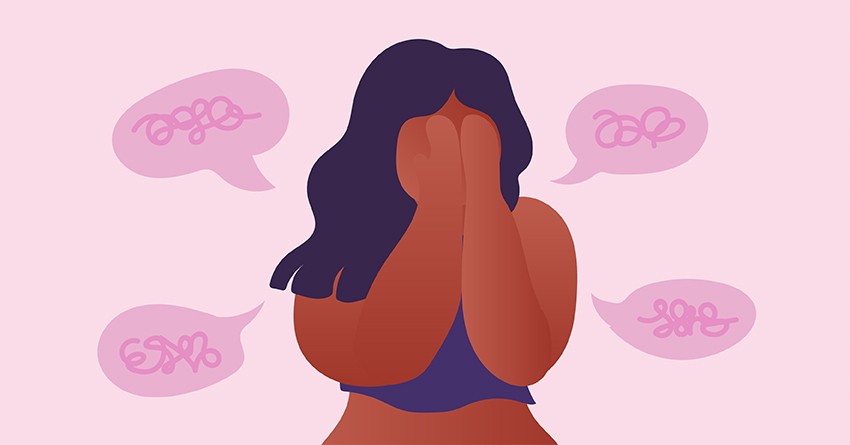 According to various studies, women who are experiencing psychological stress worsens their menstrual pain. It also can have wide-ranging effects on the body, such as compromising your immune system. That’s why being able to manage your stress is a must. If your mental and emotional health is dwindling, it will negatively affect your physical health too. With that, here are some ways for you to manage your stress:
According to various studies, women who are experiencing psychological stress worsens their menstrual pain. It also can have wide-ranging effects on the body, such as compromising your immune system. That’s why being able to manage your stress is a must. If your mental and emotional health is dwindling, it will negatively affect your physical health too. With that, here are some ways for you to manage your stress:
- Talk to a trusted family or friend about your problems and other stressful thoughts. Don’t suppress your emotions.
- Keep a journal and write out your frustrations as well as things to be thankful for.
- Rest if you’re sick. If you really don’t have some time off from work, go ahead. If you keep on doing your tasks when you’re not in a proper state, you may end up being more stressful than ever.
Yoga
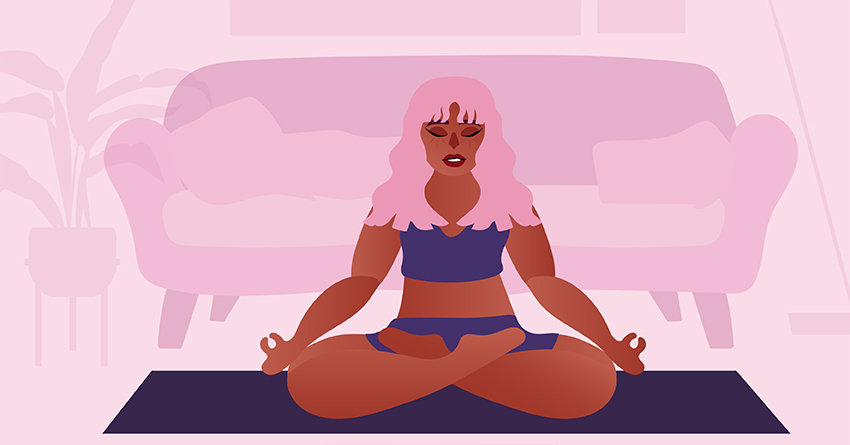 As discussed in a recent study from the Journal of Alternative and Complementary Medicine, engaging in yoga may relieve period cramps. Aside from relieving menstrual pain, it’s also reported that yoga reduces bloating and breast tenderness, as well as bringing better moods to women going through the cycle. Should you try this activity, keep in mind that consistency is the key. You need to regularly practice yoga at least twice a week to reap the long-term benefits. Also, consider starting with hatla-style yoga classes before exploring other types. This type of yoga session adds breathing and relaxation methods that can also ease out your menstrual pain.
As discussed in a recent study from the Journal of Alternative and Complementary Medicine, engaging in yoga may relieve period cramps. Aside from relieving menstrual pain, it’s also reported that yoga reduces bloating and breast tenderness, as well as bringing better moods to women going through the cycle. Should you try this activity, keep in mind that consistency is the key. You need to regularly practice yoga at least twice a week to reap the long-term benefits. Also, consider starting with hatla-style yoga classes before exploring other types. This type of yoga session adds breathing and relaxation methods that can also ease out your menstrual pain.
Alcohol & Smoking Reduction
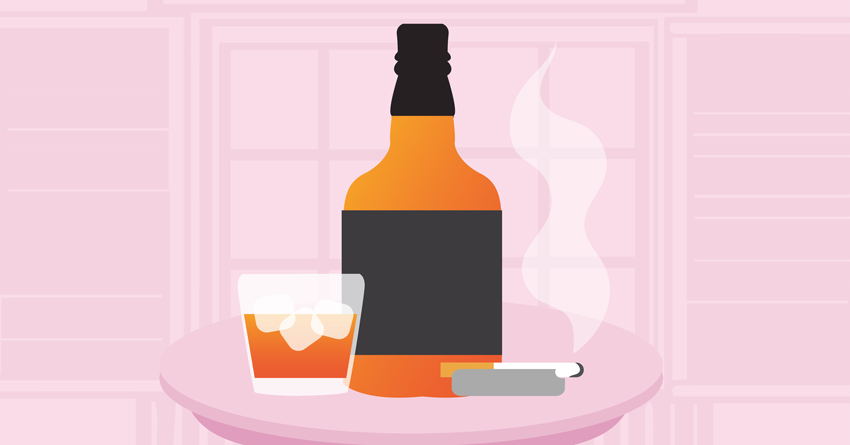 If you feel like going on a drinking and smoking binge while being on your period, stop right there! Drinking liquor can worsen your menstrual cramps. Some might suggest that alcohol makes the cramps less painful but here’s the thing: alcohol is diuretic—it dehydrates you. So even though you feel numb while chugging that martini, you may end up with excruciating pain afterwards. As for smoking, you may end up with more painful cramps. According to this recent Australian study, women who smoke cigarettes may be at higher risk for menstrual pain. Smoking causes vasoconstriction (constriction of the blood vessels), bringing more painful cramps during your cycle.
If you feel like going on a drinking and smoking binge while being on your period, stop right there! Drinking liquor can worsen your menstrual cramps. Some might suggest that alcohol makes the cramps less painful but here’s the thing: alcohol is diuretic—it dehydrates you. So even though you feel numb while chugging that martini, you may end up with excruciating pain afterwards. As for smoking, you may end up with more painful cramps. According to this recent Australian study, women who smoke cigarettes may be at higher risk for menstrual pain. Smoking causes vasoconstriction (constriction of the blood vessels), bringing more painful cramps during your cycle.
Herbs & Herbal Medicine
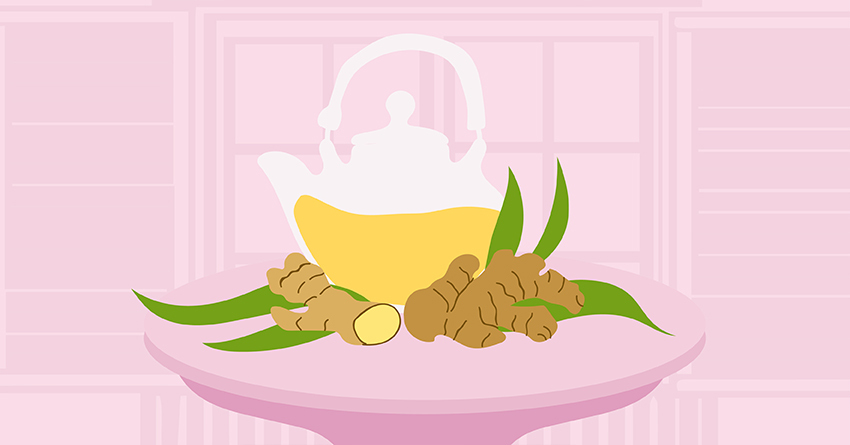 If you’re someone who is open to alternative medications, you may want to check these herbs and herbal meds to ease your menstrual pain:
If you’re someone who is open to alternative medications, you may want to check these herbs and herbal meds to ease your menstrual pain:
- Fennel – According to the 2015 study from the Iranian Journal of Nursing and Midwifery Research, fennel extract has a greater effect in relieving period pain as compared to mefenamic acid, which is an over-the-counter pain reliever.
- Ginger – Incorporating this herb in your meals or drinks may help soothe menstrual cramps, according to a study published in 2009.
- Chinese Herbs – According to a 2008 report consisting of 39 studies, it shows that Chinese herbs may relieve period cramps more effectively than over-the-counter pain medications.
Take note though, there’s limited scientific support for the claim that herbs and herbal medicines can actually relieve period cramps. But there’s no harm in trying, right?
Acupuncture & Acupressure
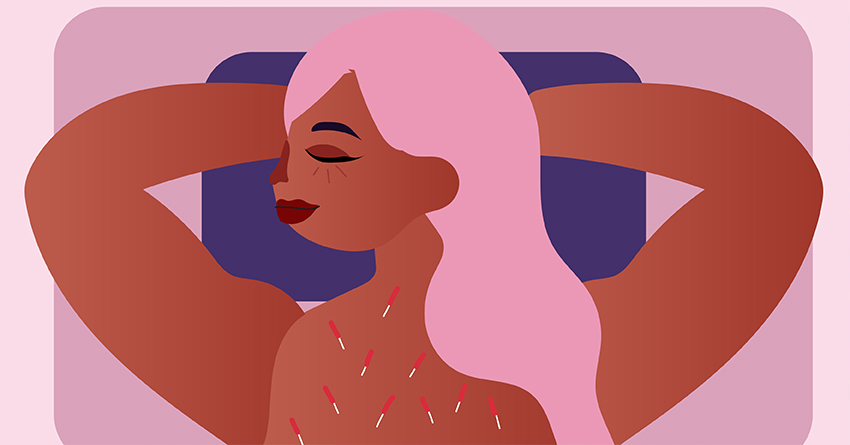 If you’re taking an alternative approach that doesn’t require supplements nor exercise, this remedy could be a good fit for you. Acupuncture is a procedure on which hair-thin needles are placed on specific spots to relieve pain, such as menstrual cramps. On the other hand, acupressure is a procedure where one applies pressure—using fingers, palms, elbows, or feet—to certain points on your body. Both of these procedures are widely recommended solutions to relieve period cramps. Numerous studies have reported that the women who have tried the procedure felt a major improvement in their menstrual cycles. However, studies revolving around them are inconclusive. Nevertheless, you could give these procedures a try, should you be open with traditional alternative remedies.
If you’re taking an alternative approach that doesn’t require supplements nor exercise, this remedy could be a good fit for you. Acupuncture is a procedure on which hair-thin needles are placed on specific spots to relieve pain, such as menstrual cramps. On the other hand, acupressure is a procedure where one applies pressure—using fingers, palms, elbows, or feet—to certain points on your body. Both of these procedures are widely recommended solutions to relieve period cramps. Numerous studies have reported that the women who have tried the procedure felt a major improvement in their menstrual cycles. However, studies revolving around them are inconclusive. Nevertheless, you could give these procedures a try, should you be open with traditional alternative remedies.
Bathing in Epsom Salts
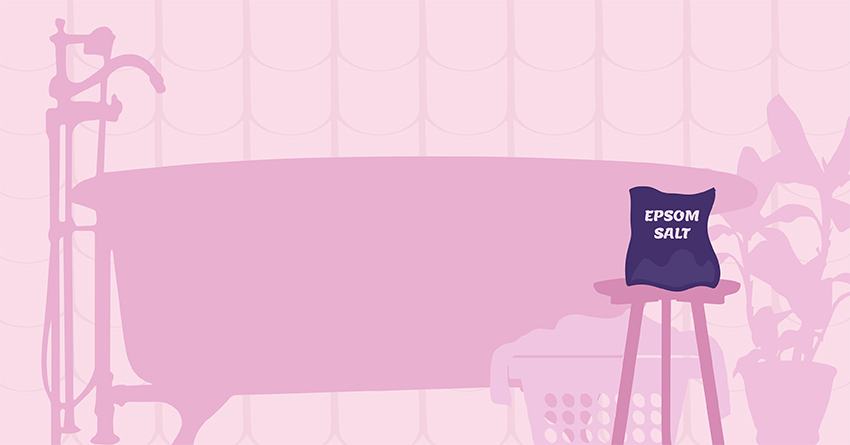 Planning to take a warm bath to relieve period cramps? Alleviate the experience by adding some Epsom salts in the tub. Epsom salt is a chemical compound consisting of magnesium, oxygen, and sulfur. It’s known to be an alternative remedy to insomnia, constipation, fibromyalgia. It’s also known to give relief to people who are suffering from muscle cramps and tension, so by adding this specialized chemical to your tub, it’ll most likely relieve the cramps in your uterus too.
Planning to take a warm bath to relieve period cramps? Alleviate the experience by adding some Epsom salts in the tub. Epsom salt is a chemical compound consisting of magnesium, oxygen, and sulfur. It’s known to be an alternative remedy to insomnia, constipation, fibromyalgia. It’s also known to give relief to people who are suffering from muscle cramps and tension, so by adding this specialized chemical to your tub, it’ll most likely relieve the cramps in your uterus too.
TENS Machine
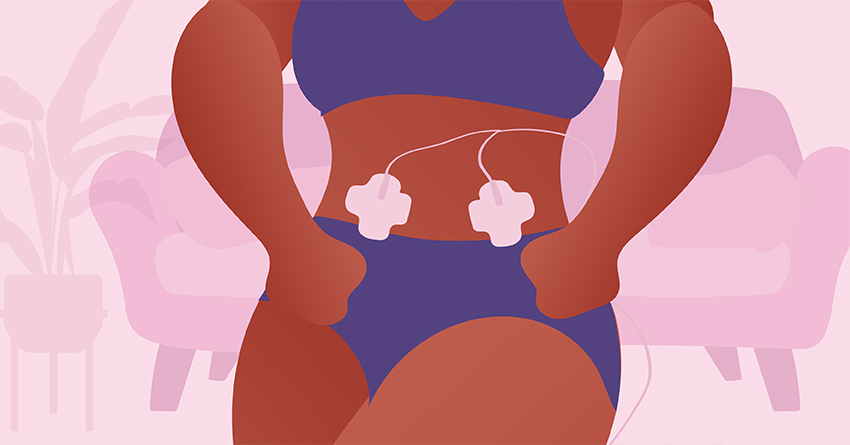 For those who are unfamiliar with this machine, a transcutaneous electrical nerve stimulation (TENS) unit is a battery-operated device that delivers small electrical impulses. Once the electrical impulses flood the nervous system, it reduces its ability to transmit pain signals to the spinal cord and brain. The impulses also stimulate the body to produce endorphins, which are the body’s natural pain relievers. Now since the TENS machine reduces the pain signals that go through the spinal cord and brain it’ll most likely reduce the pain you’ll be feeling every cycle. The natural pain-killing chemicals also help in relieving the pain too.
For those who are unfamiliar with this machine, a transcutaneous electrical nerve stimulation (TENS) unit is a battery-operated device that delivers small electrical impulses. Once the electrical impulses flood the nervous system, it reduces its ability to transmit pain signals to the spinal cord and brain. The impulses also stimulate the body to produce endorphins, which are the body’s natural pain relievers. Now since the TENS machine reduces the pain signals that go through the spinal cord and brain it’ll most likely reduce the pain you’ll be feeling every cycle. The natural pain-killing chemicals also help in relieving the pain too.
Frequently Asked Questions
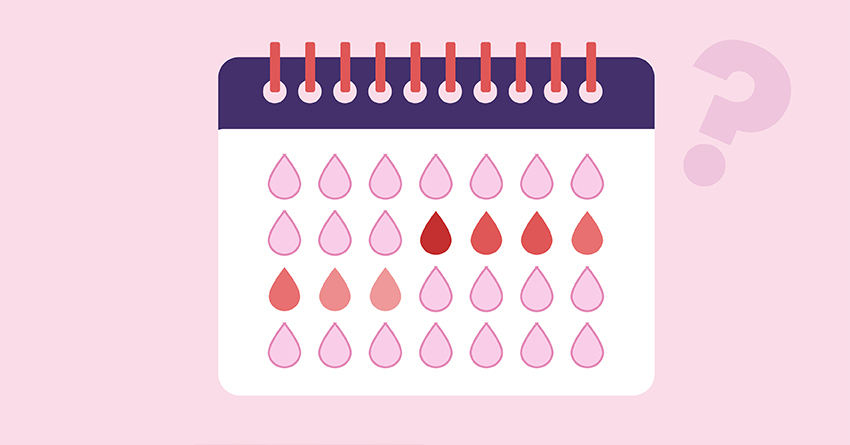 Now that you’ve learned about the ways on how to relieve period cramps, we hope you’ll be able to find a remedy that works best on you. However, some of you probably still have some questions about menstrual cramps. With that, we’ve answered five of the most commonly asked questions about period pain.
Now that you’ve learned about the ways on how to relieve period cramps, we hope you’ll be able to find a remedy that works best on you. However, some of you probably still have some questions about menstrual cramps. With that, we’ve answered five of the most commonly asked questions about period pain.
Who is most likely to experience menstrual pain?
If you’re below 20 years old, have started puberty at 11 years or younger, are having heavy every cycle, and have never given birth, you’re most likely going to suffer from menstrual pain. Certain conditions can also make you experience period pain, such as having endometriosis, adenomyosis, pelvic inflammatory disease, cervical stenosis, uterine fibroids, polycystic ovary syndrome, and premenstrual syndrome.
How can I prevent menstrual cramping?
Changing your lifestyle is the key! If you want to reduce or remove your menstrual cramps in the long run, you need to choose healthier foods, exercise regularly, manage your stress levels, and quit unhealthy vices such as drinking and smoking. You can also prevent cramping by going to the doctor as early as you experience the period pains. In that way, your doctor will be able to prescribe you with the right medications or treatments.
Can I have sex while experiencing menstrual cramps?
As long as you and your beau are up for some messy sex, there no reason to avoid sex during your period. In fact, most specialists suggest having sex during your period. As we’ve mentioned above, reaching orgasms during your period will relieve menstrual cramps and even relaxes your uterus afterwards.
When should I get medical help for period pain?
If you have severe menstrual cramps that hinder you from doing anything, or if the cramping lasted for more than 3 days, it’s best to consult your doctor. Also consider the time when you started having cramps. If you’re over 25 and just started having menstrual cramps, consult your doctor immediately as there could be an underlying serious condition behind it.
What tests might my doctor do to determine the cause of menstrual cramping?
This depends on your initial consultation. Once you’ve discussed your current condition to your doctor, they may conduct the following tests:
- Pelvic exam
- Pelvic ultrasound
- Rectal-vaginal exam
- Transvaginal ultrasound
- Hysteroscopy
- Sonohysterography
- MRI
- Pap smear
Again, this depends on your initial consultation with your doctor. Don’t think about the tests too much. Stressing out could even worsen your condition so just relax and trust the professionals.
Takeaway
Menstrual cramps range from dull-yet-annoying sensations up to severe-and-excruciating pain. It can interfere with everyday activities and may even lead to serious health conditions. Fortunately, there are tons of ways on how to relieve period cramps. It’s just up to you to decide which methods work the best and which ones have no effects at all. Just be careful though, take one remedy at a time, and if possible, consult your healthcare provider first. You got this, sis!
